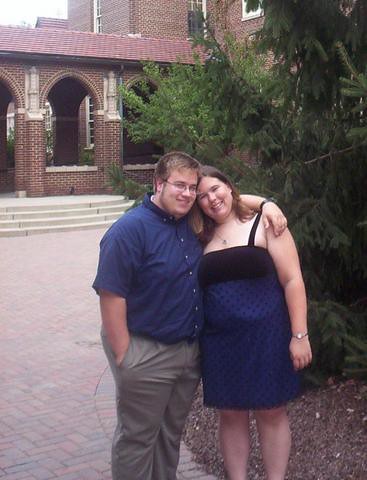Doubt, Luther
October 27th and 28th, 2007
David Hively
Peace Lutheran Church
Last week we started exploring matters of faith and doubt. We talked about the way that both faith and doubt are present in the lives of believers and how we must not be afraid to deal honestly with the doubts that we have. We talked about the nature of God and how God is far bigger than any belief structure that we can create or comprehend and that we do not need to try to get all of our questions answered before we can start to trust in and rely on God. Finally, we landed on three responses to doubt:
1. Acknowledge the doubt,
2. Tell your doubts to God.
3. Tell your doubts to trusted others in your life.
At the turn of the millennium A&E did a special on the most influential people in the past 1,000 years. The list had some pretty incredible names on it. Guttenberg made it to the top of this list, for his invention of the printing press and making books widely available and affordable for the first time. Second was Isaac Newton who earned this spot for his contributions to science, physics, and astronomy. Can you guess who was third? This guy, Martin Luther (the theologian most likely to be mistaken for a civil rights leader.)
This weekend is a time set aside by the church for honoring the contributions of Martin Luther, the unwilling founder and namesake of our denomination. It is a time of celebration, a time where we look back with fondness and appreciation for the contributions that Luther made to our understanding of the faith:
1. salvation comes from God’s grace alone, not from our works
2. We are made right before God by faith alone
3. and that the Word alone, not the church, is the final authority.
I call him an unwilling founder because I believe that Luther would have been very sad to see a church that bears his name. His intention was never that there would be a break away movement from the Catholic church, but that the church would reform. Sadly, the reforms Luther called for were too much for the church to bear and it caused a division that exists even to this day.
We often picture Luther, striding confidently across the square to nail his 95 theses to the door of the castle church in Wittenburg and ignite a theological revolution whose impact is felt to this very day. Or we think of Luther standing before the Diet of Worms with all of his writings spread out on the table before him. He’s been told that if he does not recant that he will be declared an outlaw, thrown out of the most powerful organization on the planet, and condemned to hell. Yet in the face of all of that Luther stands up and says, “Here I stand, I can do no other.” But I don’t think that those images lead us to a very complete picture of Luther because it leaves out everything that led up to those moments.
We don’t hear about the darker side of Luther. We do not hear about the hard times, the struggles he faced. Luther grew up in a very strict home where any disobedience was strictly punished. He recounts one time where he was beaten bloody for the simple crime of stealing a nut. His home was one where the father reigned supreme and sat in harsh judgment – and that is the God that Luther came to know as well. He knew nothing of a God who was gracious and merciful, slow to anger, and abounding in steadfast love. No, the God that Luther knew was wrathful and angry; watching over every deed, waiting to smite the lowly human for even the most meager of offences.
This led Luther into a time of great angst and consternation. How was he to reconcile a God who claims to love the world, yet who never seemed to be placated by any amount of good works? The 2003 Luther movie does a good job capturing this part of Luther’s faith journey. In this scene, Luther has just presided over communion for the first time. While doing so, he was so overcome by the presence of God that he dropped the chalice full of wine and fled the sanctuary. The scene picks up that night, after Luther has returned to his cell, and he is arguing with the devil.
(video)
Let’s go back to those three steps that we talked about last week. 1. Acknowledge the doubt. Luther was pretty clear about what was holding him back. The scriptures spoke of a God of love and compassion. Yet, Luther didn’t feel that compassion or love – instead, the God that Luther experienced was one of wrath and anger, a God who created imperfect humans and then demanded perfection from them.
Second, Luther was honest with God about his doubt. Luther was known to spend more time in prayer and confession than any of his colleagues in the monastery. Luther spent so much time in confession that his confessor actually grew sick of listening to him and told him to come back when he had something interesting to confess.
Third, as we saw in the video just a few moments ago, Luther shared his doubt with a trusted other. He was able to tell his confessor at the monastery just what his doubts were and the torment that they were causing in his life. In this case, he was able to draw strength from the advice of his confessor, “Look to Christ. Bind yourself to Christ, and you will know God’s love. Say to him ‘I am yours, save me.’”
The confessor’s advice is a paraphrase of the readings for today. From Romans we hear, “all have sinned and fall short of the glory of God. They are now justified by his grace as a gift.” You see, Luther was going about it all wrong. He was trying to earn God’s love. He wanted to be able to do something that would make God love him more. But that isn’t how it works. Our standing before God does not depend on how many good or bad things we do in a day, a week, or even a lifetime. There are no scales on which you pile up your good and bad deeds, hoping to tip the scales to the good side and earn a pass into God’s eternal favor.
Through his time of doubt and questioning, Luther had rediscovered the good news of the faith. This Gospel message had gone un-proclaimed for hundreds of years. But when it was released it stood everything on its head. It gave people the freedom to read the Bible for themselves, to trust in God and not the church for their salvation, and it taught them all that they could have a direct relationship with their God and creator. It was an amazing message 500 years ago, and it still has power today. It has power because it does not place the act of salvation on us. We do not save ourselves through our actions, or our rituals. We do not earn salvation by some prayer that we say, song that we sing, or ritual we perform. We are saved by God’s grace, given to us as a gift out of God’s overflowing love for us. Thanks be to God.
Let us pray: God we thank you that even in times of doubt, you are still at work in our lives. Give us the courage to turn out doubts over to you, trusting that you will guide us into your truth. In Jesus name, Amen.
Subscribe to:
Post Comments (Atom)



No comments:
Post a Comment